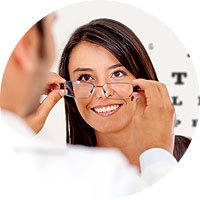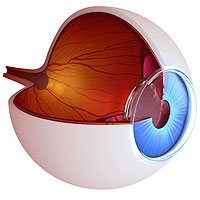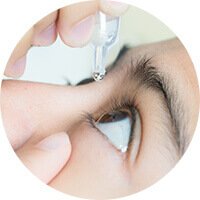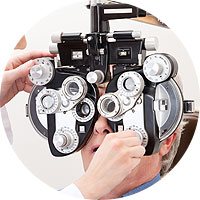Do you need cataract surgery? Have you been thinking about what happens after your cataract procedure?
Cataract surgery not only restores clear vision but also significantly improves your quality of life. In order to ensure a smooth recovery, it’s essential to follow several recommended guidelines.
Keep reading to learn more about what kind of eyewear you need after cataract surgery and what to expect after your cataract procedure!
Is There Special Eyewear after Cataract Surgery?
Your eye doctor may require you to use the following eyewear after cataract surgery:
Eye Shield
Your cataract surgeon will send you home wearing a clear shield over the treated eye. The lightweight shield will likely be secured with surgical tape.
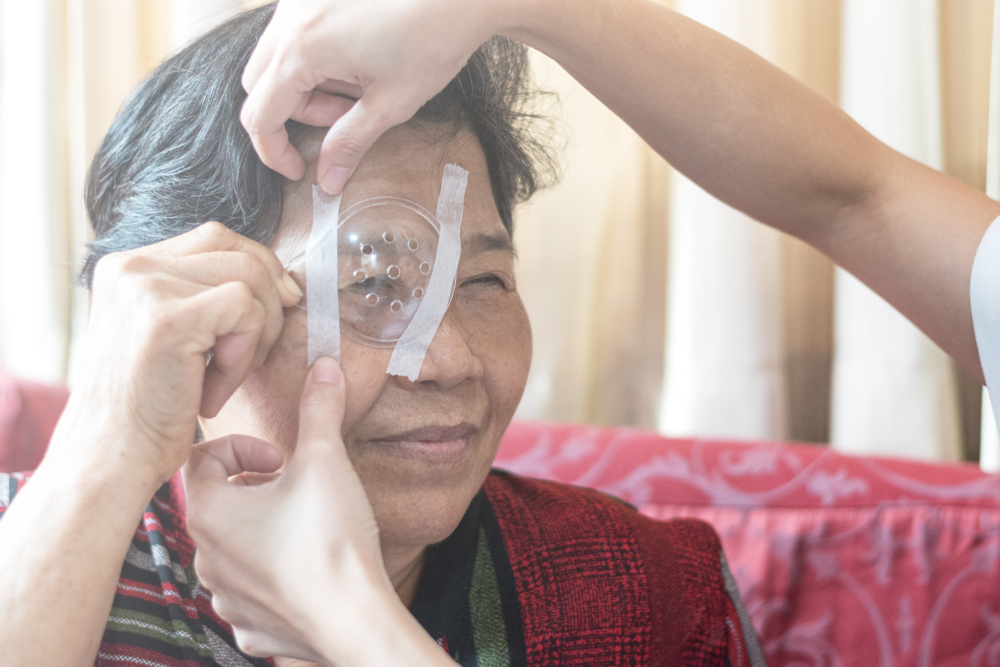
Since it’s transparent, you’ll be able to see out of the eye that was operated on. The shield will protect your eye from any potential injury and dust, wind, pollen, and other particles that could cause infection and irritation.
You’ll need to leave your shield in place for several hours and only remove it to instill eye drops as needed. However, you’ll still wear your shield when napping and sleeping at night.
The shield will prevent you from accidentally touching and rubbing your eye in your sleep. Your eye doctor will suggest you use the eye shield for at least a week.
It’s important to wear the shield as instructed. It may be best to sleep on your back to avoid dislodging your shield overnight or while napping. This helps prevent unintentional pressure on the healing eye and post-surgery complications.
Sunglasses
You’ll need to wear dark sunglasses after your cataract procedure. Sunglasses play a crucial role in your recovery. For starters, they’ll help minimize light sensitivity and glare during your trip back home.
You may notice that your eyes have become more sensitive to glare and light than usual, so sunglasses will come in handy. Sunglasses will also protect your eyes from harmful UV rays.
Keep in mind that not all sunglasses are created equal. You should consider the following when choosing sunglasses to ensure maximum eye protection:
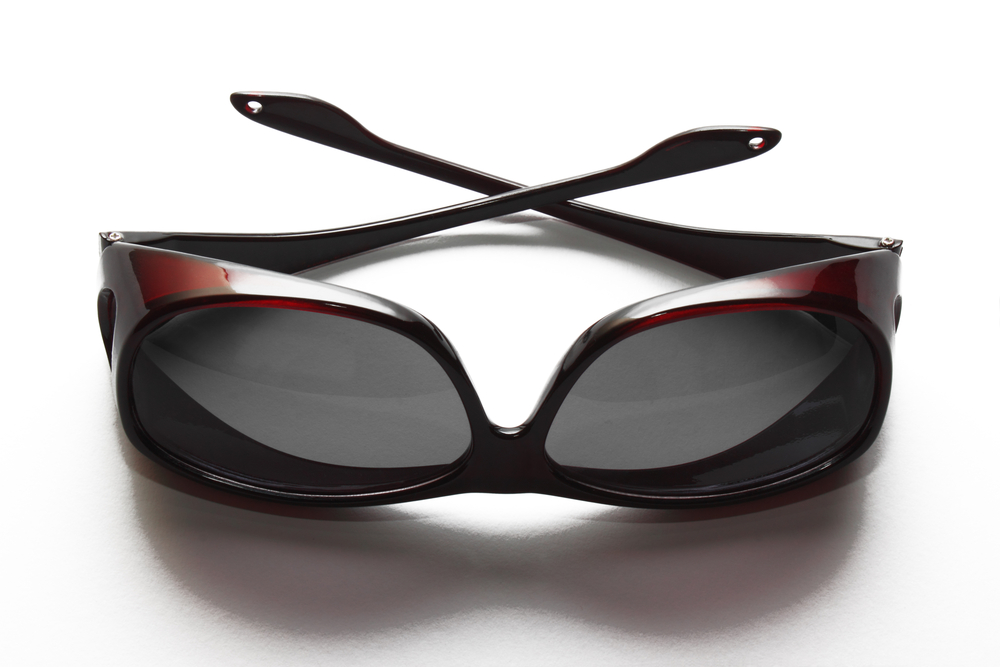
UV Protection
Sunglasses should offer 99 to 100 percent protection from the harmful UVA and UVB rays. You may see a label indicating UV (ultraviolet) absorption of up to 400nm (nanometers). That’s the equivalent of 100 percent UV protection.
Size
You want to keep UV light out of your eyes as much as possible. The bigger your sunglasses are, the more protection they provide. So, choose oversized ones to better
protect your eyes.
Polarization
Consider investing in polarized sunglasses with 100 percent UVA and UVB protection. Polarized lenses are designed to subdue blinding glare from smooth surfaces like roads, glass, water, pavement, snow, and other light-reflecting surfaces.
Quality
Wear a pair of sunglasses and stand in front of a mirror. Can you see your eyes through them?
If you can, they are probably not dark enough. Pick sunglasses that screen out 75 to 90 percent of visible light.
In other words, you shouldn’t be able to see your eyes looking back at you from behind your sunglasses.
Do you want to learn if it might be time for cataract surgery?
What to Expect After Cataract Surgery
After your cataract surgery is done, you’ll be moved to the recovery room until you are cleared to go home. While you relax, your cataract surgeon will prescribe eye drops to prevent infection and control inflammation.
They will also run through all your post-op instructions. Be sure to follow all of them for a smooth and fast recovery.
You may notice an improvement in your vision in the recovery room. However, things might still be blurry as your eyes adjust and heal.
Once you are cleared to go home, you won’t be able to drive yourself. So, make prior arrangements for a family member or friend to take you home.
You’ll likely feel a little tired or groggy when you get home. You may want to take a nap.
For the first week, your eye doctor will recommend that you wear an eye shield while sleeping to protect your eye so it can heal.
What Are the Common Side Effects After Cataract Surgery?

You may notice the following post-procedure:
- Red eyes
- Discomfort
- Blurred vision
- Bruising near the eye
These side effects are common and should disappear within a day or two.
Many patients report clear vision in only a matter of hours after cataract surgery.
However, it can take up to one to two weeks before your eyesight is at its sharpest. Your eye should have completely healed after eight weeks.
If you have cataracts in both eyes, you’ll have two separate procedures, usually after the first eye has healed.
When Will My Vision Improve After Cataract Surgery?
Most patients see better after cataract surgery than when they had cataracts. However, depending on the artificial lens or intraocular lens (IOL) you select, you may still need to wear contact lenses or glasses for most or only some activities.
You can help your eye heal properly by observing these helpful guidelines:
- Apply your eye drops exactly as prescribed
- Wear sunglasses whenever you step outside
- Avoid rubbing your eye
- Don’t go swimming until you are cleared
- Attend all follow-up visits
- Avoid bending over or any strenuous activity
Remember to contact your eye doctor right away if you experience any of the following symptoms:
- Eyelid swelling
- Deteriorating vision
- Increased eye redness
- Flashes of light or new floaters
- Pain that doesn’t go away even after taking over-the-counter medications
- Vision loss
Enjoy Clear Vision with Cataract Surgery
If cataracts are limiting your lifestyle, having them removed can restore clear, healthy vision. The experienced ophthalmologists at Eye Care Specialists can help eliminate your symptoms and even allow you to experience greater visual freedom depending on your IOL selection.
Are cataracts affecting your vision and everyday life? Schedule your cataract screening at Eye Care Specialists in Berwick, Bloomsburg, Dallas, Hazelton, Kingston, Nanticoke, or West Pittston, PA, today to find out if it’s time for cataract surgery!











